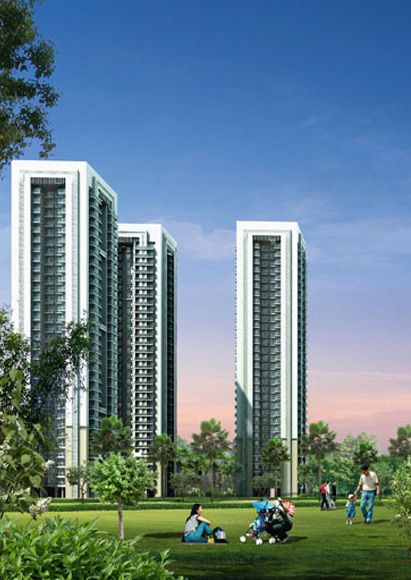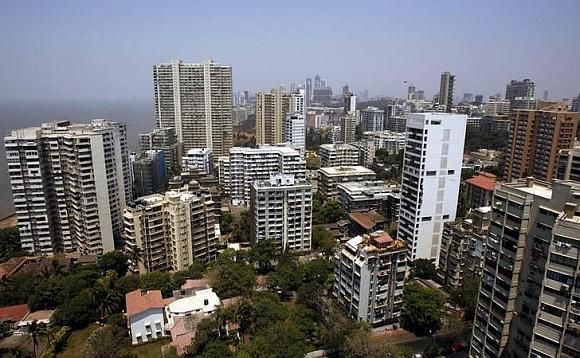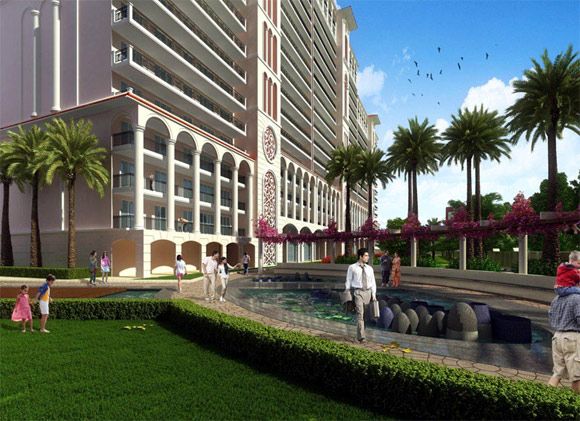 | « Back to article | Print this article |

Gurgaon and Mumbai -- two of India’s largest real estate markets -- are set to witness a correction in property prices, say analysts.
With the Bharatiya Janata Party emerging as the single-largest party in Haryana and Maharashtra, experts say the new governments led by the BJP are likely to push land reforms and expedite various approval processes, bringing down the cost for developers and, ultimately, the end users.
Gurgaon and Mumbai, the richest cities in Haryana and Maharashtra, respectively, have always been the preferred markets for investors. Most parts of these cities are beyond the reach for those looking for affordable homes.
“We are expecting correction in prices as monopoly of certain developers, especially in Gurgaon, is bound to end,” says the top executive with a real estate firm. Single-window clearance, a demand for long, is likely and so are land reforms, he adds.
‘House for all by 2022’ has been a top agenda for the BJP government at the Centre.
While there are many developers across the two states, DLF in Gurgaon and the Lodhas and Oberois in Mumbai are among the biggest names.
Most affordable projects are located on the boundaries or suburbs of these cities. Sanjay Dutt, managing director of Cushman & Wakefield, a realty consultant, says: “Mumbai suffered a lot in terms of approvals and costs added up. If a developer bought land for Rs 1,000 crore and paid 30 per cent interest, he had to shell out Rs 300 crore, which was included in the apartment prices.”
When more supply gets released in the market, prices will stabilise and correct eventually, Dutt adds.
Sunil Rohokale, managing director of Mumbai-based ASK group, says: “With a stable government in place, I think the speed with which decisions are taken will increase and if the real estate regulatory Bill, a pragmatic land Bill and fast approvals are introduced, the state (Maharashtra) does not need anything else.”
According to Om Ahuja, CEO (residential services) at JLL (Jones Lang LaSalle), a global property consultancy, if the new government focuses on reducing land costs by increasing floor space index and transferable development rights (TDR), and launching a housing regulator, property prices will become affordable for the common man.
Floor space index means permissible construction allowed on a given piece of land. TDRs are the rights that are granted by the government for undertaking socially-relevant schemes such as slum redevelopment and which can be traded in the market.
“The development control rules of the previous government did not help the common man. They just plugged the revenue losses for the government and local municipality,” says Ahuja.